How To Support Deaf Students as Campuses Reopen This Fall
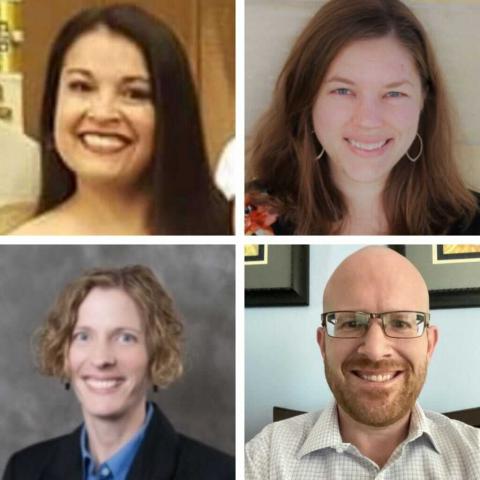
This event has concluded. View the video recording and read a summary here.
Live Panel December 8: The Power of Community: Centering Deaf People in Decision Making
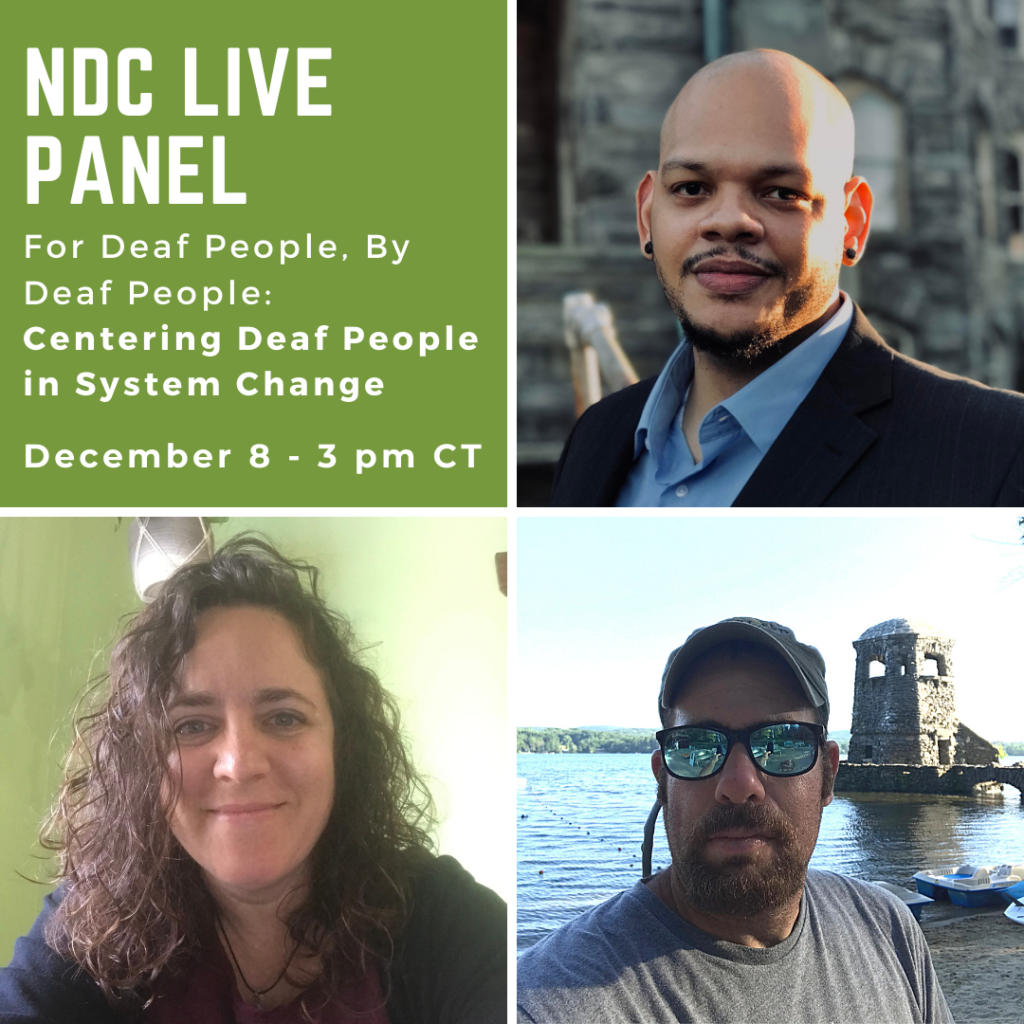
The lived experience and knowledge of deaf community members must guide policy changes, strategic planning, and programs that are designed to reduce barriers and increase opportunities for deaf people in the United States. In reality, however, this is seldom the case. Decisions are made for, and behalf of, deaf people without involving them every day. This upcoming live event panel on Dec 8 is an opportunity for panelists to gain an understanding of the importance of including deaf people in decision making and key elements of deaf-led community projects.
Engaging for Change: State Leaders Meet Regionally to Address Pandemic Crisis for Deaf Youth
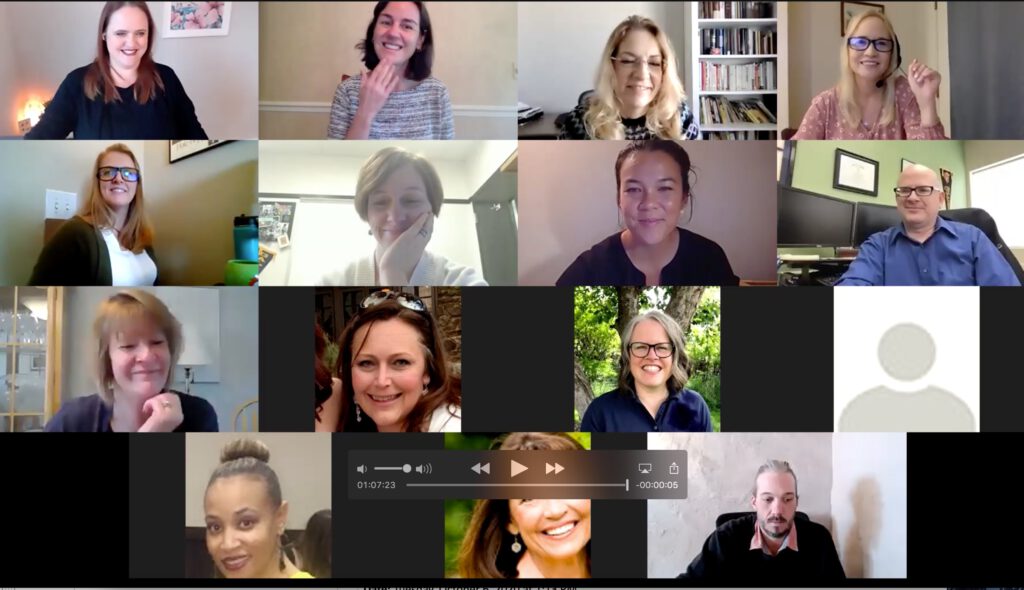
Leaders in education and vocational rehabilitation (VR) met throughout the summer and fall in Engage for Change | state (EFC) online regional meetings organized by NDC — determined to advance their short-term pandemic response and proactively create long-term strategies to improve services, support, and outreach to deaf youth.
NDC Live Event on November 17: Does Auto Captioning Effectively Accommodate Deaf People?

There has been a significant increase in the use of captioning services for online learning due to COVID-19 pandemic. To keep up with the demand, many educational entities have turned to Automatic Speech Recognition (ASR) technology to provide equitable and timely accessibility for students. While ASR has seen rapid developments in recent years, the gaps in the technology compromises equity access for deaf students. This presentation is designed to give answers to commonly asked questions from professionals in education settings.
Auto Captions and Deaf Students: Why Automatic Speech Recognition Technology Is Not the Answer (Yet)

With the rapid shift to online learning due to the pandemic, many colleges and schools are relying upon automatic captions as a quick and cheap way to convert spoken words into text for deaf students in classrooms, events, and extracurricular activities. While this type of automatic speech recognition (ASR) technology may be effective for Alexa — to ask your home device to make a grocery list or set a reminder — it is a sub-standard option in educational settings and can have costly repercussions for institutions.
Raising Deaf Youth During COVID-19: Family Panels Reveal How to Engage and Encourage
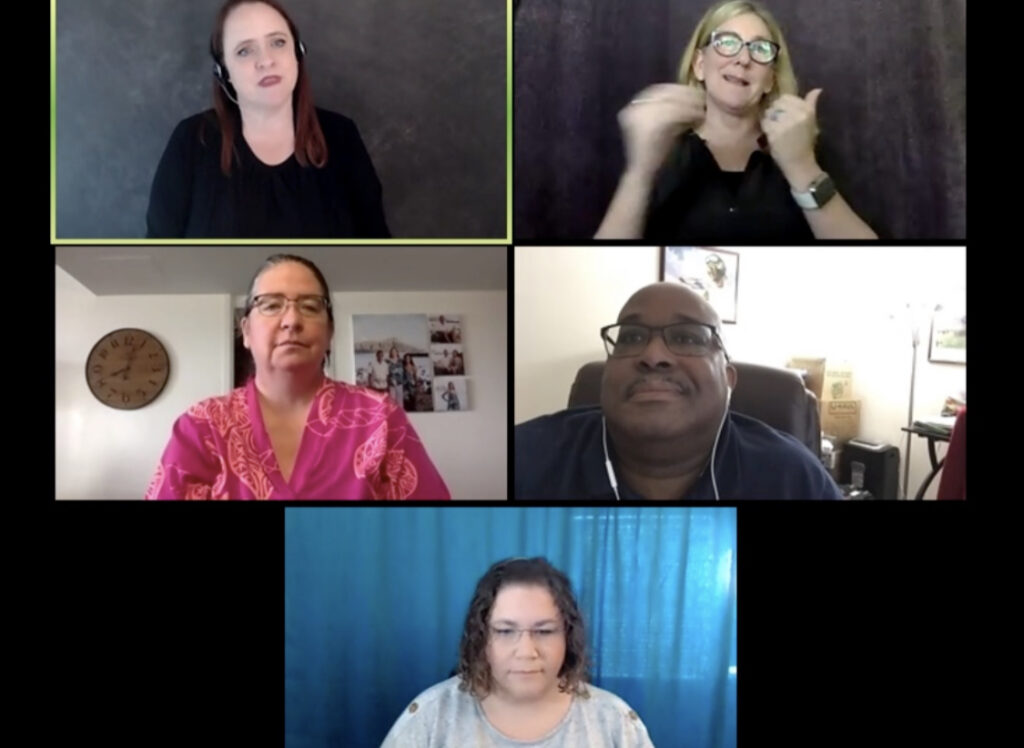
For deaf students attending high school and preparing to enter college or careers, COVID-19 is adding uncertainty to a time that, while exciting, is already challenging. That’s why NDC hosted two live online panels for families of deaf youth nationwide, to help them connect and learn from each other.
Live Panel October 27: Accessible Instruction for Deaf College Students During COVID-19 and Beyond
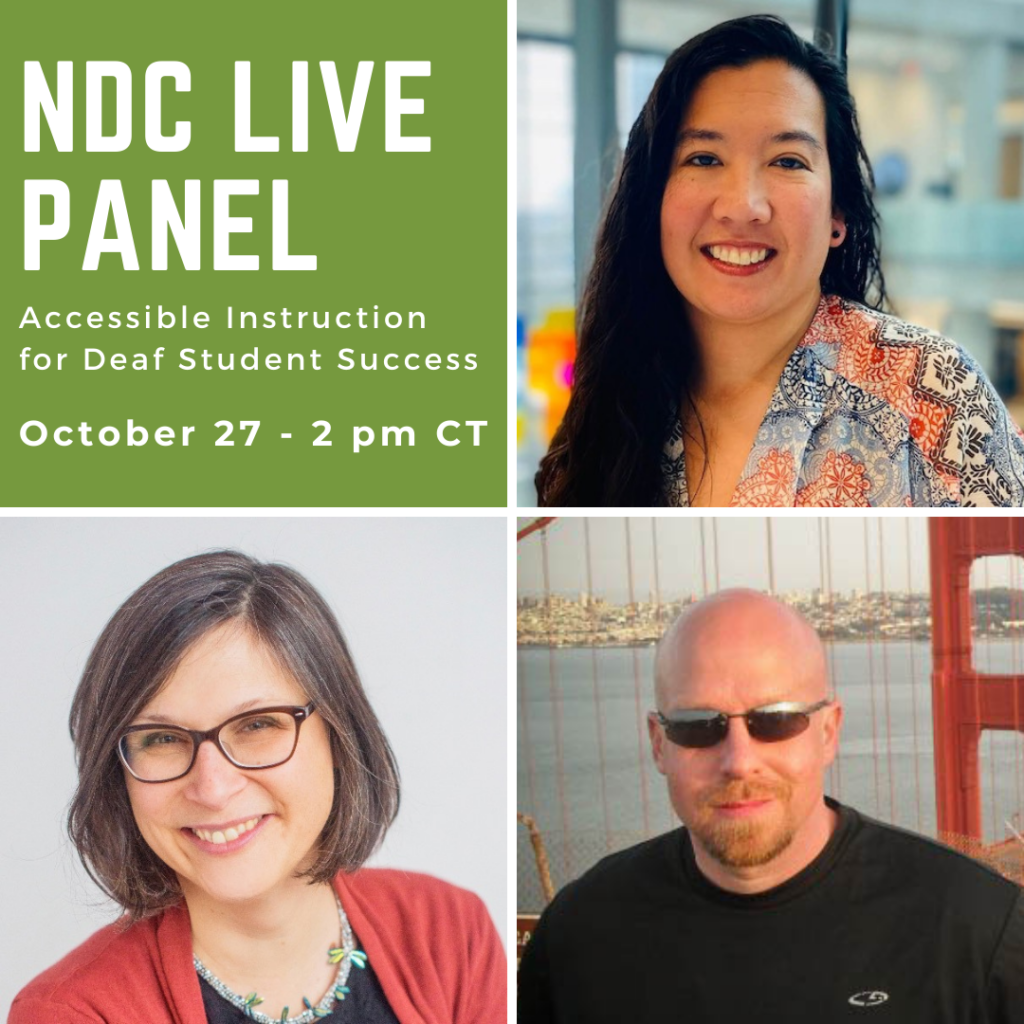
Ensuring that every student has access to your instruction is more important than ever, yet can be more challenging due to the pandemic — whether you’re teaching online, in person, or a little bit of both.
Cuidado personal como parte del bienestar mental

Mientras atravesamos las crisis del 2020, la salud y la seguridad son la prioridad de todos. Sin embargo, mientras tomamos medidas para proteger la salud física de la población, la salud mental es igualmente importante. La incertidumbre, el aislamiento y un entorno en constante cambio pueden pasar factura, lo que resulta en agotamiento, fatiga y episodios de depresión o ansiedad.
Self-Care as Part of Mental Health



In this pandemic, health and safety is at the forefront of almost everyone’s mind. However, as we take measures to protect the physical health of the population, mental health is equally as important. Isolation, uncertainty, and a constantly changing environment can take a toll, resulting in burn-out, fatigue, and episodes of depression or anxiety.
Deaf Success Story: Cookie Brand, School Counselor


Cookie Brand is the newest profile in the #DeafSuccess video series by the National Deaf Center on Postsecondary Outcomes. Featuring firsthand accounts from deaf Americans, #DeafSuccess videos show deaf youth the wide variety of paths adulthood can take and seek to empower them to have high expectations for the future.
Comparta experiencias, obtenga consejos y conéctese con otras familias de estudiantes sordos


Las familias de estudiantes sordos en todo el país tienen la oportunidad de conectarse entre sí durante dos paneles en línea en vivo organizados por el Centro Nacional de Sordos sobre Resultados Postsecundarios, el 20 y 29 de septiembre. Los paneles están abiertos a cualquier persona y la asistencia es gratuita.
Director’s Update: Finding Balance. Gauging Impact. Journeying Together.


Summer was full of anticipation for the new school year. Fall now feels simultaneously like more of the same and new challenges to face.
We here at NDC are with you both in the triage and in the long term mission of supporting deaf people in reaching their education and employment goals.





